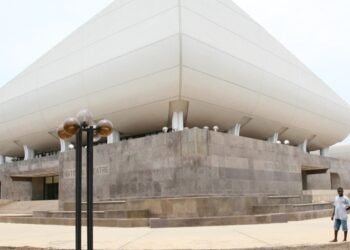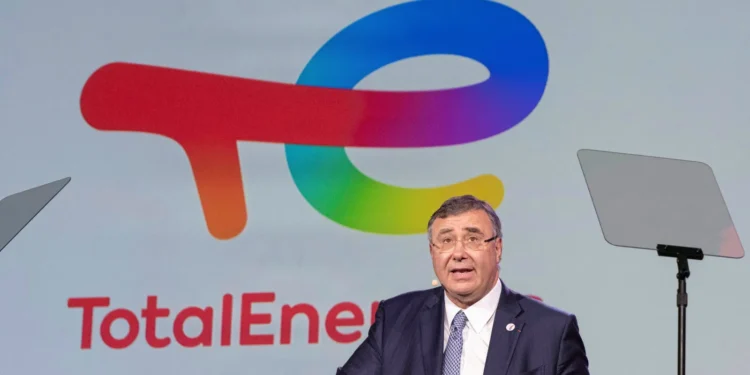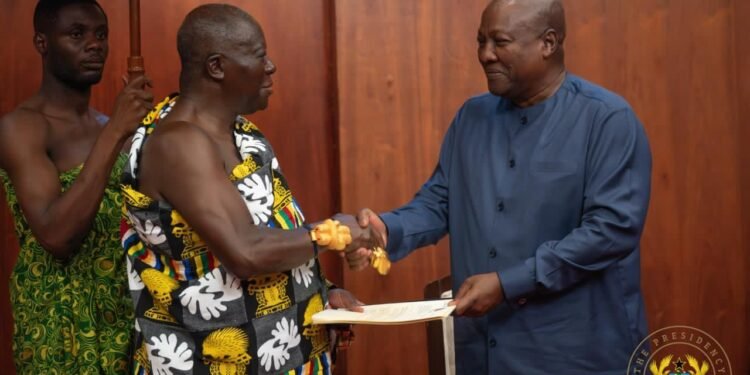Ghana, often called the “Gateway to West Africa,” is renowned for its rich cultural heritage, stunning landscapes, and vibrant ecosystems.
The country boasts numerous tourist attractions, including historical sites, national parks, and beautiful coastlines. However, the rise of illegal mining, commonly known as galamsey, poses a significant threat to Ghana’s tourism aspirations.
While small-scale mining is legal and regulated, galamsey operations often occur without permits, leading to unregulated extraction of gold and other minerals.
These activities have surged due to the high demand for gold, driven by both local and international markets. Unfortunately, the environmental degradation and social disruptions associated with galamsey have far-reaching consequences.
Francis Doku, the Chief Operations Officer of Plugin Digital Limited, has commented on how illegal mining, popularly known as galamsey, will affect Ghana’s tourism aspirations.
He stated that in a country that is working hard to position itself as a preferred tourism destination, anything that destroys the environment has ripple effects. “Eco-tourism is very important to people and they want to come into places where they have access to clean water,” he noted.
Francis said in countries like Kenya, there is a huge market for that eco-tourism because they pay particular attention to it. “Because they have done proper conservation they can show the things they have in terms of the natural [resources] and all that,” he said.
He added that galamsey has the potential to ward off investors.
“Tourism thrives on investment. Last year, there was an investment summit at Peduase which the President addressed. There have been different conversations on how to attract investment into our tourism space. And all these conversations that are going on, investors sometimes are shy of things like ‘how do we get our money back to invest in your economy, especially in tourism?’
“Because of the bad press that we have had, a lot of people have asked questions about what is happening in Ghana. There is a way in my view that those investments will not come here so we cannot expand our tourism infrastructure because the government cannot do everything.”
Francis Doku
Galamsey operations often involve clear-cutting forests and excavating land, destroying natural landscapes.
The use of toxic chemicals, such as mercury and cyanide, in illegal mining processes contaminates local water bodies. Rivers and streams that once supported diverse aquatic life and provided clean water for communities and tourists alike are now polluted.
The destruction of habitats due to galamsey activities threatens biodiversity. Many species that attract eco-tourists, such as birds, butterflies, and other wildlife, are at risk. The loss of biodiversity can diminish the ecological integrity of national parks, reducing their appeal as tourist destinations.
Social Implications

Illegal mining often leads to the displacement of communities, as land is taken over for mining activities. This displacement disrupts local cultures and traditions, which are integral to the tourism experience.
Tourists are increasingly interested in authentic cultural interactions, and the loss of these communities detracts from this experience.
The health hazards associated with galamsey, including exposure to toxic substances and the spread of diseases, deters tourists from visiting affected areas.
Additionally, the strain on local health services due to mining-related health issues can further impact the quality of life for residents and their ability to engage with tourists.
Francis Doku noted that tourists are likely not to visit the country if they consider their health safety.
The host of the Africa Rising Podcast, therefore, called on the appropriate authorities to help fight ‘galamsey’ so Ghana does not suffer what he describes as “Tourism Armageddon.”
The issue of illegal mining has become topical in recent times following reports of an increased number of activities leading to it and the concomitant effects on the well-being of citizens.
A lot of individuals, pressure groups, and organizations have advocated for a swift approach to rescuing the age-old situation before it gets out of hand.
As environmental degradation and social issues mount, the attractiveness of Ghana as a tourist destination diminishes. Galamsey operations often lead to competition for resources such as water and land.
International investors and tour operators are increasingly cautious about investing in regions where illegal mining is prevalent.
The negative perception associated with galamsey leads to a decline in foreign investment in the tourism sector, stalling development projects and initiatives aimed at enhancing tourism infrastructure.
Collaborative efforts between government, local communities, and stakeholders in the tourism industry are essential to mitigate the impacts of galamsey and ensure that Ghana remains a vibrant and attractive destination for tourists from around the world.
Addressing the challenges posed by illegal mining is not just an environmental necessity but also a crucial step toward achieving Ghana’s long-term tourism goals.
READ ALSO: Justice Atuguba Dissects Implications of Article 97 on Parliamentary Majority






















